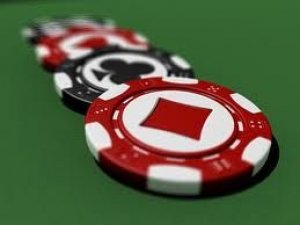
All iLive content is medically reviewed or fact checked to ensure as much factual accuracy as possible.
We have strict sourcing guidelines and only link to reputable media sites, academic research institutions and, whenever possible, medically peer reviewed studies. Note that the numbers in parentheses ([1], [2], etc.) are clickable links to these studies.
If you feel that any of our content is inaccurate, out-of-date, or otherwise questionable, please select it and press Ctrl + Enter.
A norepinephrine injection can help prevent rash behavior at the gaming table
Last reviewed: 01.07.2025
 ">
">Researchers have identified a neurotransmitter that softens the sting of losing and suppresses the desire to win back.
When it comes to addiction to alcohol, or smoking, or any narcotic substance, the mechanism of formation of such dependence is more or less clear. We have a specific substance, for example, the same alcohol, which affects the biochemistry of nerve cells, and they begin to work differently. Accordingly, it is clear how to treat this: you just need to suppress the interaction of the narcotic substance with cellular receptors. But what about psychological addictions like addiction to video games? There is no harmful molecule that interferes with the work of our brain.
What levers should you press to get rid of psychological dependence?
Researchers at Kyoto University in Japan report that they have solved this puzzle for gambling addiction. As they write in the journal Molecular Psychiatry, the key players here are norepinephrine and its transporter molecules.
Scientists asked 19 volunteers to play a gambling game, after which their brain condition was assessed using positron emission tomography. Some players had lower levels of transport molecules that carry norepinephrine. This led to an accumulation of norepinephrine in the brain. This, according to scientists, alleviated the stress of losing - a person did not suffer much after losing some money in a game.
If the level of norepinephrine in the brain was reduced, the subject was very worried about losing money and tried to win it back. Scientists conclude that the gambling decision to win back is not always made by "free will" - sometimes we are pushed to do so by the specifics of brain chemistry.
If norepinephrine is effectively flushed out of the brain, we will suffer even from the loss of the smallest amount, trying again and again to get it back. If we are lucky, and our norepinephrine transport molecules are not very active, then we will not become gamblers. In this regard, the logical question arises: is it possible to treat the craving for gambling with injections of norepinephrine or blockers of its transport? If the results of the studies are confirmed, casino owners are unlikely to be delighted with this discovery.

 [
[